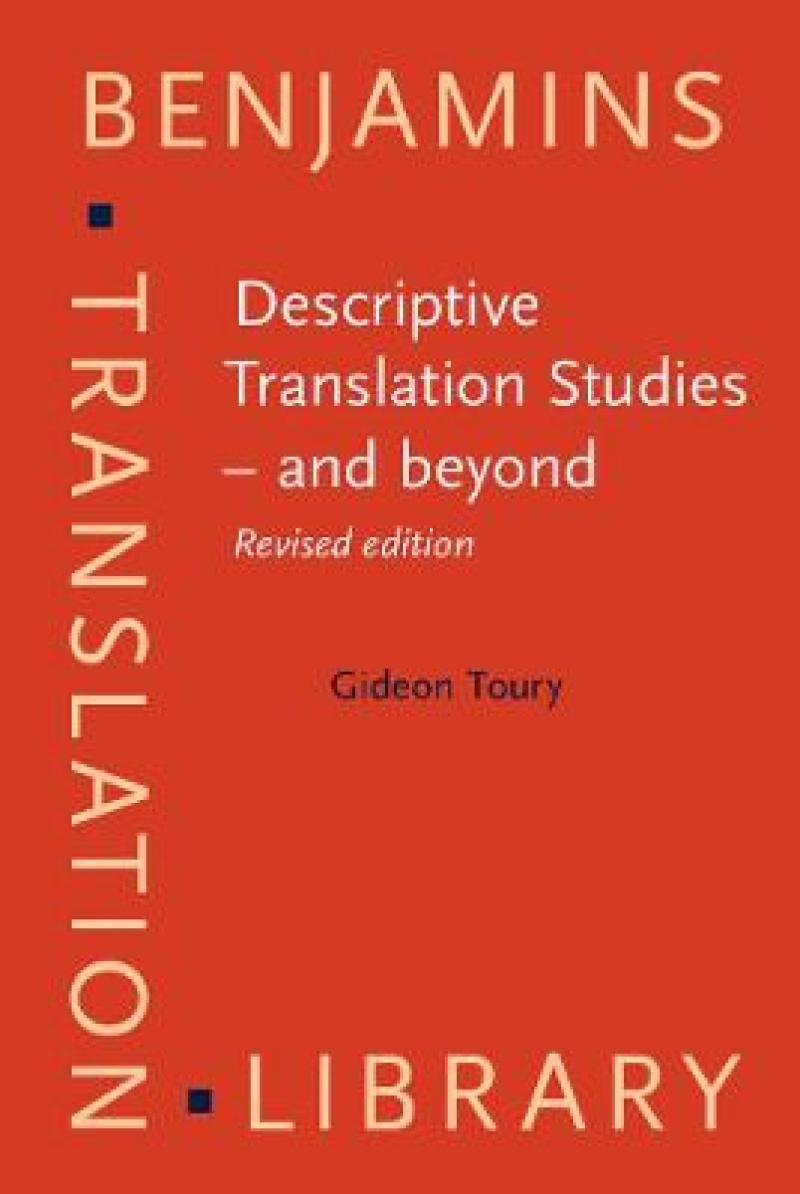What mostly makes special and unique this revised book is a variety of case studies, which not only accelerates the methodological and theoretical discussions for further interpretations and endeavors but also uniquely frames the whole material into the confines and parameters of an enchanting anthology. [...] These features give credit to G. Toury who has developed and procured his revised product in its entity with so much caution and respect as well as deep appreciation to John Benjamins Publishing Company.
- Enkelena Shockett, in Styles of Communication Vol. 5:1 (2013), pag. 152-156,
The revised version of this translation studies classic updates and refines many of the arguments that were so influential in revolutionizing the field when the book first appeared. One particularly interesting addition is the expanded discussion of the distinction between the translation act and the translation event. There is also an additional chapter on the concept of the translation problem. The book will be essential for all serious translation scholars.
- Andrew Chesterman, University of Helsinki,
Gideon Toury’s second, revised edition of <i>Descriptive Translation Studies—and Beyond</i> (1995) takes stock of the substantial impact of the first edition of this work on the discipline as a whole and pans over three decades of influence in defining the field of Descriptive Translation Studies (DTS). The volume remains as influential as it ever was, with some useful reformulations of concepts.
- Federico M. Federici, in The Year's Work in Critical and Cultural Theory Vol. 22:1 (2014),
<i>Descriptive Translation Studies - and beyond</i> [...] stands as a revision of a landmark text of a landmark development in Translation Studies. It is difficult to imagine the development of modern Translation Studies without the contribution of DTS. For those new to Translation Studies, this book provides a useful introduction to one of the foundational approaches to the field, written by its founding scholar.
- Jonathan Downie, Heriot-Watt University, on Linguist List: Vol-24-2655, July 2013,
Toury has written a highly thought-provoking book. It opens up new horizons not only to descriptive but also to applied translation studies. I hope the discussion between them will go on to their mutual benefit.
- Paul Kussmaul, Johannes Gutenberg-Universität Mainz,
Throughout the book, theoretical and methodological discussions are illustrated by an assortment of case studies, the emphasis being on the need to take whatever one wishes to focus on within the contexts which are relevant to it.
Part One discusses the pivotal position of the descriptive branch within Translation Studies, and Part Two then outlines a detailed rationale for that positioning. This, in turn, supplies a framework for the case studies comprising Part Three, where a number of exemplary issues are analysed and contextualized: texts and modes of translational behaviour are situated in their cultural setting, and textual components are related to their texts and then also to the cultural constellations in which they are embedded. All this leads to Part Four, which asks what the knowledge accumulated through descriptive studies of the kind advocated in the book is likely to yield in terms of both the theoretical and the applied branches of the field.
All in all: an innovative, thought-provoking book which no one with a keen interest in translation can afford to ignore.
